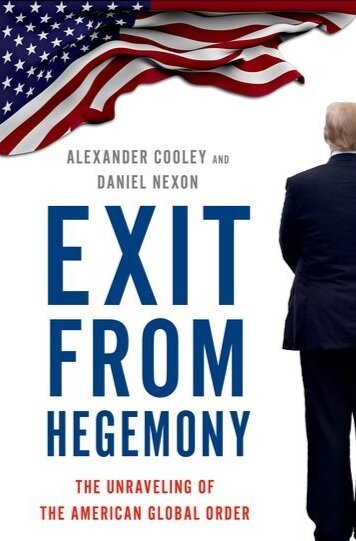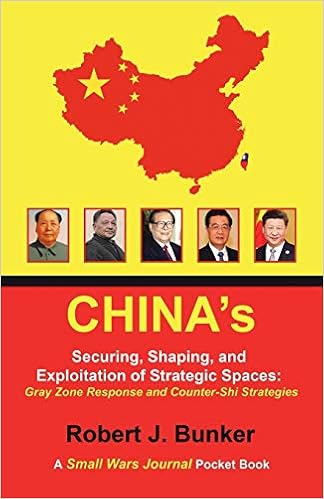The A Yeoman Farmer Series Part II.
Tuesday, September 1st, 2020[Mark Safranski/ zen]
I am stirring from blogging retirement to bring you a series culled from a historical-political essay by a scholar who is a very long time reader of ZP who wrote this post over a long period of time following the last presidential election. He writes under the pseudonym “A Yeoman Farmer” and his foil is the famous “Flight 93 Election” essay of “Publius Decius Mus” in The Claremont Review of Books. I will be breaking the essay into parts and turning the footnotes into section endnotes with each post and linking to the previous sections that have been posted. This post comprises Part II of the series.
The Reichstag is always burning: a commentary on The Flight 93 Election
By: A Yeoman Farmer
[continued]
4. Not to pick (too much) on Kesler, who is less unwarrantedly optimistic than most conservatives. And who, at least, poses the right question: Trump or Hillary? Though his answer—“even if [Trump] had chosen his policies at random, they would be sounder than Hillary’s”—is unwarrantedly ungenerous. The truth is that Trump articulated, if incompletely and inconsistently, the right stances on the right issues—immigration, trade, and war—right from the beginning.
The author suggests that Charles Kesler understands this choice and although he does not openly declare for Trump, he accepts that his policies would be sounder than Hillary’s. What is curious is how Kesler knows that Trump will be sounder given that he has no experience and presents quixotic opinions about America, what the Federal Government can do, as well as what is best for America. Moreover, neither the author nor Kesler appear to provide any basis for determining why Trump would be sounder than Clinton on policy choices except that Trump is not Clinton. Although the author gently chides Kesler for being “unwarrantedly ungenerous”, that does not mean that he disagrees, only that it is not warranted in being ungenerous. However, the author does not examine Kesler’s claim, which is a good example of political rhetoric because it sounds good and satisfies most listeners, especially those already pre-disposed to oppose Clinton and to promote Trump as a viable alternative by saying he (possibly any candidate) cannot be as bad as Clinton. By his failure to examine the evidence for Kesler’s statement, or to consider their policies, the author does a disservice. What is surprising is that if this is the level of analysis for how one studies statesmanship, that is it is about political rhetoric to flatter an audience so as to confirm one’s prejudices and not provide a standard to judge a statesman, what is the point of studying statesmanship? Trump as a candidate has displayed none of the characteristics traditionally identified with statesman. By contrast, Hillary Clinton has and even if her statesmanship is not of a high quality, she does possess the necessary characteristics of a statesman.
As Kesler does not explain what Trump is sounder about, the author argues that Trump has sounder opinions or policy proposals about immigration, trade, and war. This triumvirate is important for several reasons as they reveal what the author’s intent is. The author will develop them, but it is worth noting that two of them are explicitly about foreign policy and the third, immigration, while mainly about America’s appeal, is also about foreign policy. If we were reaching the EoH, then we would expect that immigration would actually cease for the Hegelian world state, as predicted by Kojeve, would not see a need for immigration or migration since equal recognition and comfortable self-preservation would ensure a universal society. (one notes in passing that the author has no problem with America migration, only the dreaded immigration) The triumvirate is also important for two further reasons. First, as they relate to foreign affairs they are areas where the president possess the least constrained authority. Second, quite curiously considering the rest of the essay, they have very little to do with the domestic realm except for the sense that the domestic realm creates a demand, for immigrant labour, for foreign goods, and for a well ordered republic. Yet, this triumvirate has a dark side.
5. But let us back up. One of the paradoxes—there are so many—of conservative thought over the last decade at least is the unwillingness even to entertain the possibility that America and the West are on a trajectory toward something very bad. On the one hand, conservatives routinely present a litany of ills plaguing the body politic. Illegitimacy. Crime. Massive, expensive, intrusive, out-of-control government. Politically correct McCarthyism. Ever-higher taxes and ever-deteriorating services and infrastructure. Inability to win wars against tribal, sub-Third-World foes. A disastrously awful educational system that churns out kids who don’t know anything and, at the primary and secondary levels, can’t (or won’t) discipline disruptive punks, and at the higher levels saddles students with six figure debts for the privilege. And so on and drearily on. Like that portion of the mass where the priest asks for your private intentions, fill in any dismal fact about American decline that you want and I’ll stipulate it.
What is surprising for a student who took Charles Kesler’s Cicero course at Claremont, is the claim that conservatives no longer see anything bad happening to the republic or the West. The “Crisis of the West” is practically a Strauss trade mark. Leaving aside that obvious point, the paradox raises some questions. First, who are these conservatives? Are these the ordinary conservatives mentioned at the start or the extra-ordinary conservatives or simply the abnormal ones? If the author is a conservative, then is he included in this litany of ills? If he does, then can he explain his time justifying the Iraq War and the pre-emptive war that has transformed the republic as that would be a clearer threat to the republican ethos than a symptom like Trump or even Clinton’s policy proposals. More to the point, what does victory look like in these wars against “sub-Third World” [sic]? One wonders if he expects a victory as decisive with the defeat of Nazi Germany, Imperial Japan, and Fascist Italy. If he is, then he seems unaware of how warfare has changed since the enemy’s centre of gravity does not exist in the same manner that allows decisive defeat as it is not linked to a state. Perhaps what the author is suggesting is a subtle critique to that the dichotomy that created the idea of the Third World is no longer appropriate for there is no difference between America and Russia as there once was during the Cold War.
If we look at his list of ills, which appear to be a sub-category within his concern for trade, immigration, and war, they tell us something about the author’s intent.
- Illegitimacy.
- Crime.
- Massive, expensive, intrusive, out-of-control government.
- Politically correct McCarthyism.
- Ever-higher taxes and
- ever-deteriorating services and infrastructure.
- Inability to win wars against tribal, sub-Third-World foes.
- A disastrously awful educational system that churns out kids who don’t know anything and, at the primary and secondary levels, can’t (or won’t) discipline disruptive punks, and at the higher levels saddles students with six figure debts for the privilege.
Except for the seventh ill, the other seven are focused on the domestic realm and they are not areas where Trump has offered anything new or noteworthy. Moreover, Trump has demonstrated, through his own behaviour and attitude a certain equanimity if not embrace of these issues since he proudly and unapologetically enjoys fornicating. By contrast, Hillary Clinton has worked her whole political life to deal with these issues. She has held elected office to deal with these issues and in that role has proposed and passed legislation to deal with them. Yet, it is her policies which are unsound?
As for his eighth ill, it is almost a cliché. One wonders if the author is an old man shouting at the kids to get off his lawn. Yet, here we are. One of the ills facing America is that the youth of today are rebellious, uneducated, and ill-disciplined.
If we focus on the wars, we return to a question that the author does not want to address. Does he mean only since 2001 to focus on the wars in Iraq and Afghanistan? Or does he mean since 1945? From the context, it appears the issue is with wars fought since 2001 or the greater reach of American foreign policy because of the attack on 11/9. If that is the case, it raises the question of why the author, who was in the Bush administration after 11/9, is now concerned about the inability to “win” these wars. Does he disagree with the response to 11/9? It seems curious that an author who presents the Flight 93 election, which was part of the 11/9 attacks, would dismiss American foreign policy that was a response to the attacks without explaining what alternative he would support or explain what it means to “win”. He seems to find fault with Bush and Obama’s response. Would he have counselled a different response to 11/9? If so, what would he have America do? Shrink from the fight or resort to nuclear weapons to settle whatever the issue? Yet, he was part of the administration that conducted the response to the 11/9 attacks and he did not resign from his post. The other ordinary and extraordinary conservatives who supported the Bush response to 11/9 did not question the war or the strategy. Perhaps, these conservatives are fair weather ones who want to be there when the trumpets sound but shrink away when caskets and injured return.
End Part II.
Footnotes
4. Trump’s policy proposals can be found here: https://www.politiplatform.com/trump/all . Clinton’s can be found here: https://www.hillaryclinton.com/issues/
5. The author seems naively unaware of where the term Third World originates, which is surprising. The first world was capitalist, the second world was the communist bloc and the Third World were the non-aligned developing countries, mainly in Africa, South, and South- East Asia. As such, there cannot be a sub-Third World for a fourth world country would not be able to exist outside the typology he has chosen.





